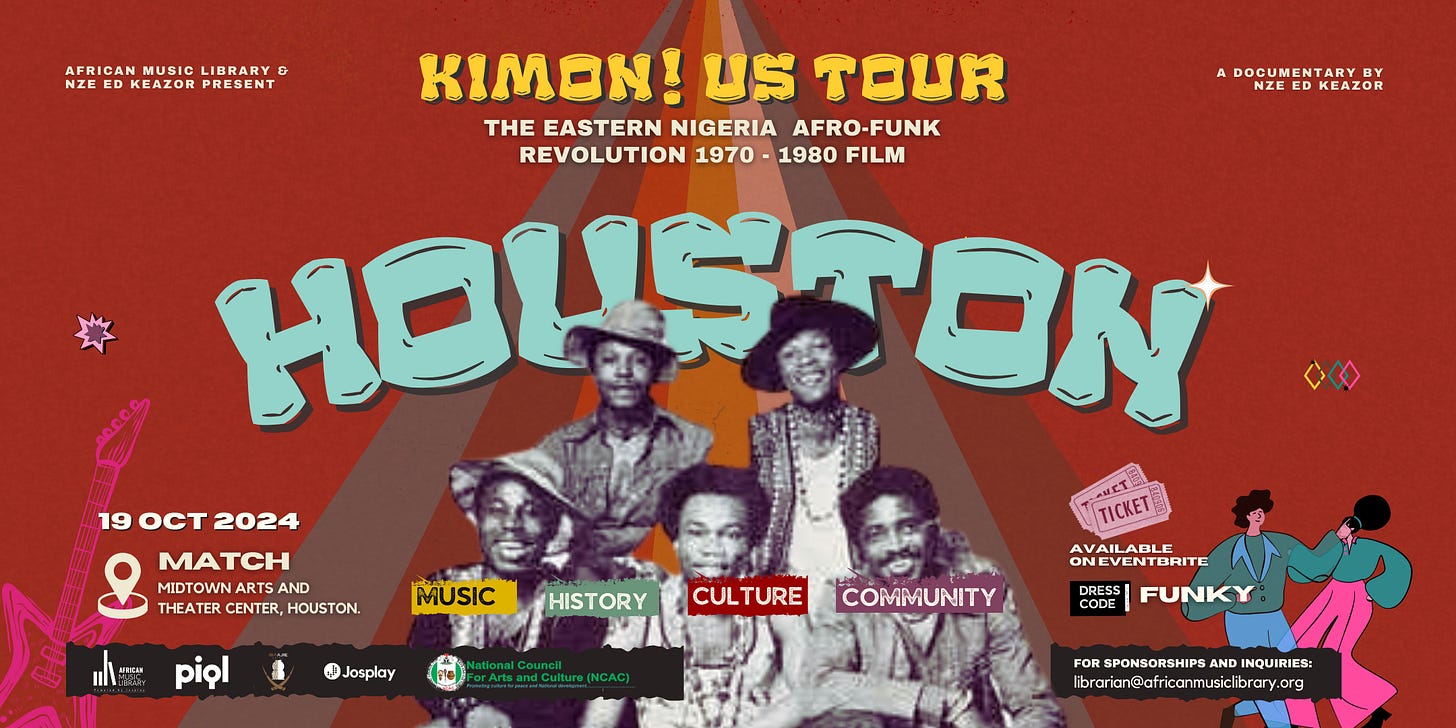Afro-funk is a genre of music that uniquely blends traditional African rhythms with elements of funk, rock, and jazz. Emerging in the 1960s, this vibrant music style draws heavily on local influences, rhythms, and instruments, infusing the funky grooves of Western genres to create something entirely new and distinctive.
In the 1960s, Nigeria's music scene was primarily dominated by highlife, a genre originating from Ghana, along with big bands, orchestras, and ethnic music. However, the growing influence of foreign music, especially funk and rock-n-roll, began to permeate the Nigerian music landscape. Prominent Western bands like the Rolling Stones, AC/DC, and Smokies, as well as iconic solo artists like James Brown, Gerardo Pino, and Bobby Byrd, introduced new sounds that resonated deeply with Nigerian audiences.
The adaptation and fusion of these Western genres with local musical traditions laid the groundwork for Afro-funk. The post-Nigerian-civil war also played a crucial role in this developing genre. The efforts of the musicians brought joy and distraction to the people and contributed significantly to the emergence of Afro-funk.
Interestingly, some articles suggest that funk music itself has African roots. During the era of the slave trade, African slaves brought their rhythms to the West. These rhythms eventually evolved and were "returned" to Africa in a crystallized form, influencing the creation of Afro-funk.
Several bands and artists were pivotal in the rise of Afro-funk. The Hikers, the Lagos-based band stuck in Port Harcourt due to the war also played a significant role.
Other notable bands from the era include One World Band, BLO (featuring Berkeley Ike Jones, Laolu Akintobi Akins, and Mike Gbenga Odumosu), and The Funkees, which boasted big names like Jake Solo, Felix Liberty, Jide Obi, Mohammed Ahidjo, Sonny Akpan, and the enigmatic highlife artist Harry Mosco. The Apostles from Aba, with members like Murphy Williams, Chike Fusion, Joe Mmadubuike, and Henry Utandu, and The Doves from Calabar, known for their memorable single "The Lord is My Shepherd," also contributed to the genre's development.
The Eastern Nigerian music scene played a crucial role in the development and popularization of Afro-funk. This region served as a fertile ground for the growth of this eclectic genre. Bands from Eastern Nigeria, such as The Funkees and BLO, skillfully blended traditional African music styles and rhythms with funk, jazz, and rock, creating a psychedelic genre that quickly became a national treasure.
Afro-funk remains a testament to the power of cultural fusion and musical innovation. By blending the rich traditions of African music with the energetic grooves of Western genres, Afro-funk not only created a unique sound but also provided a sense of hope and unity during challenging times. Its legacy continues to influence musicians and captivate audiences around the world.
Want to learn more about Afro-Funk? Come to the Houston, TX screening of Ki'mon!: The Eastern Nigerian Afro-Funk Revolution 1970-1980!
Save the date: Saturday, October 19, 2024.
Secure your tickets here.




